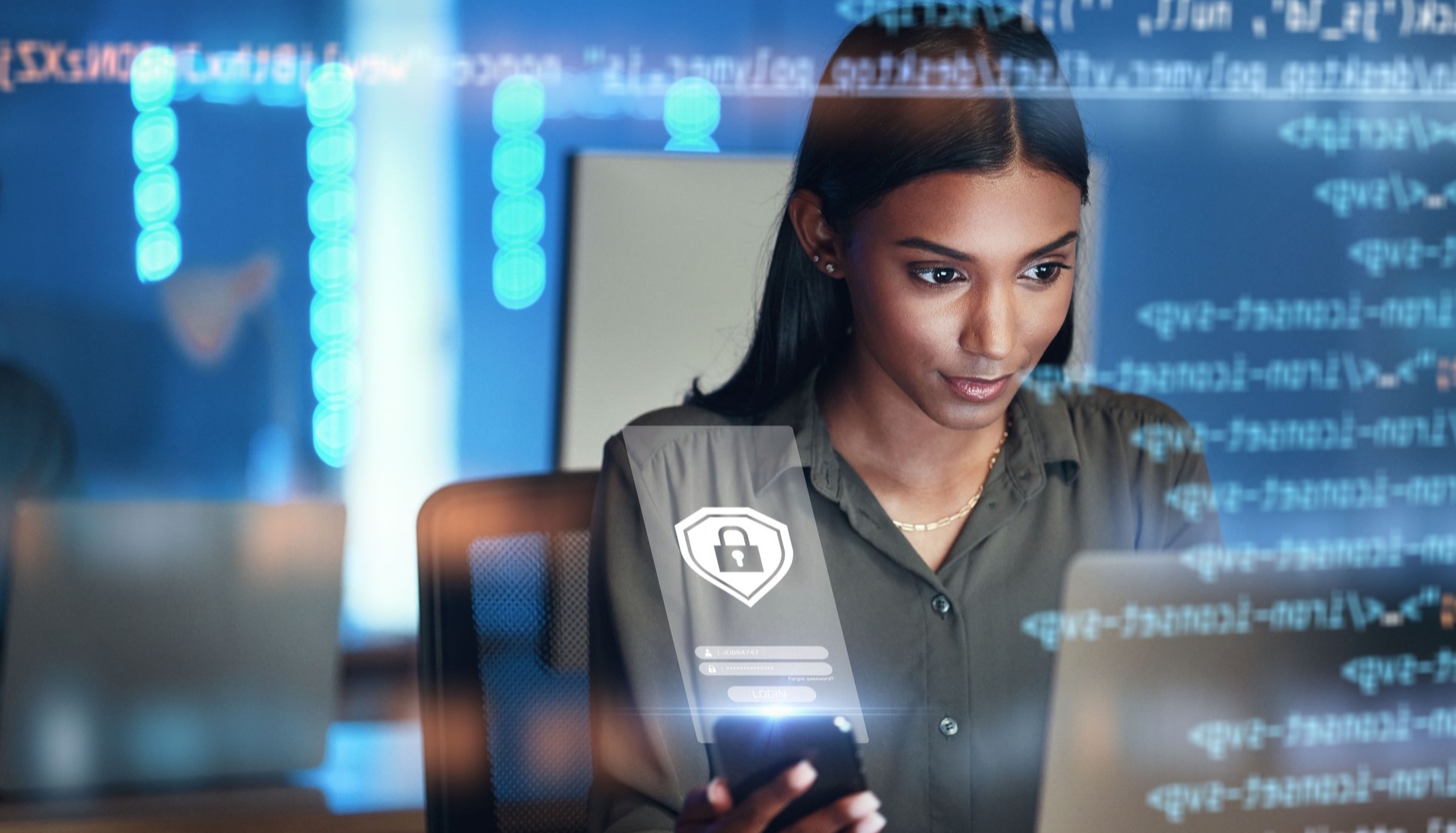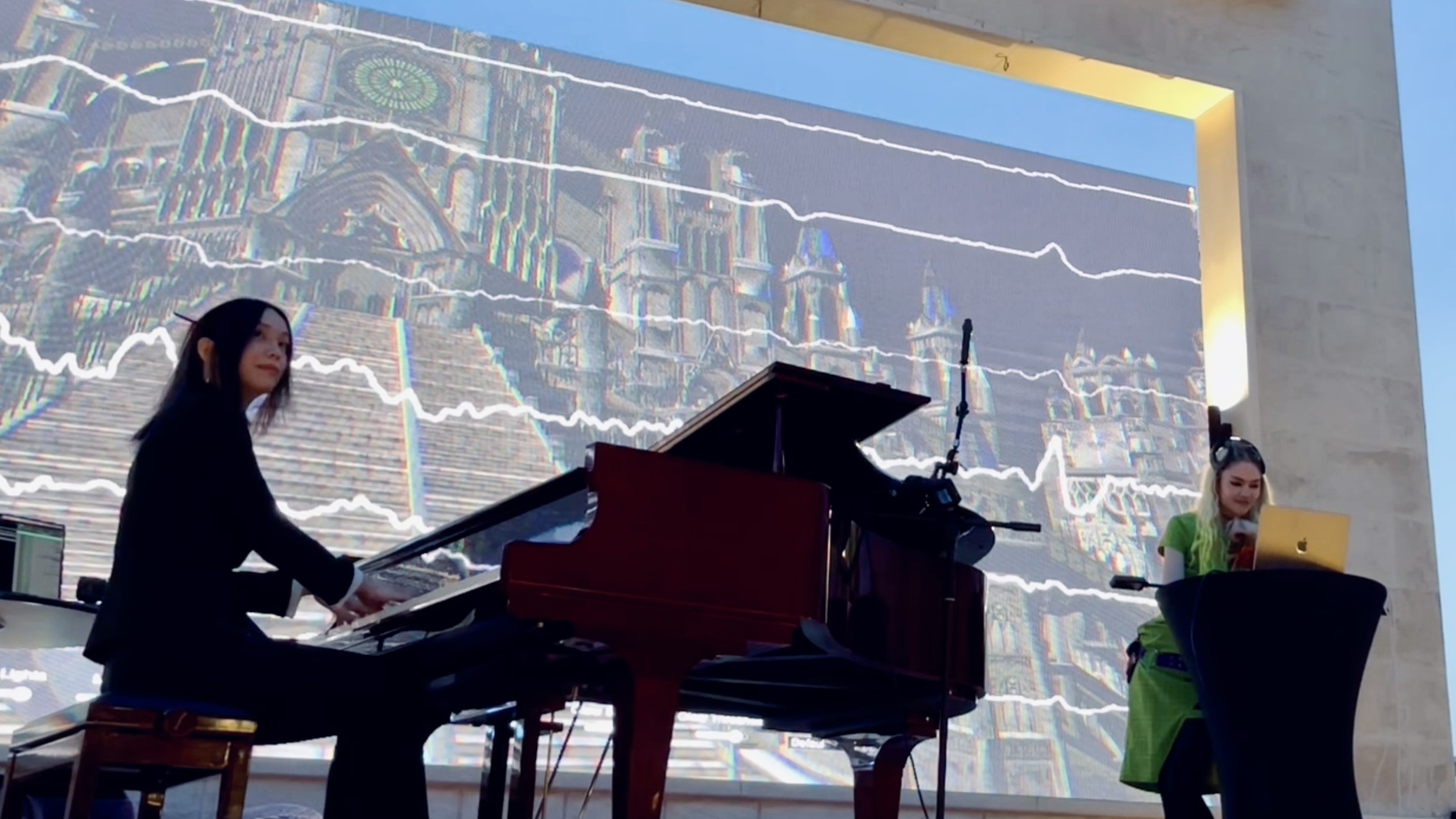When you purchase through links on our site, we may earn an affiliate commission.Heres how it works.
The progression of today’s technology is never-ending and innovations are approaching at breakneck speed.
Cybersecurity is gaining particular relevance, too, as new tools expose us to new threats.

Serene and Grimes played on a stage together during the Zuzalu conference in Montenegro in May 2023, when the artists experimented with combining classical music with EEGs (tracking her brainwaves), AI models, and generative music live.
However, women are still largely on the margins of this revolution.
According torecent data, women make up only 32% of the workforce in tech-related fields.
Even worse, perhaps, half of them reportedly give up their role by the age of 35.

Serene and Grimes played on a stage together during the Zuzalu conference in Montenegro in May 2023, when the artists experimented with combining classical music with EEGs (tracking her brainwaves), AI models, and generative music live.
What’s the cause behind these disappointing statistics, and what’s needed to bring more women on board?
She worked at Google and then passed into the open-source world.
In May 2022 she founded her own company,Snowstorm.
Serene’s career in cybersecurity wasn’t inspired by the desire to be a scientist or engineer.
“At the end of the day, we are humans solving human problems.
Technological concerns are social concerns.
“The pendulum has swung often, and it continues to swing.
Ive noticed disrespect being replaced with something approaching respect,” she said.
However, for Serene, InfoSec is just one branch of her career path.
She believes, in fact, in the power of academic research for better law-making.
“We see far more women than ever before being active in European lawmaking, especially on digital/technical files.
But often, you could still look around a room and see only a sea of white faces.”
She’s also an exiled Iranian womens rights activist now living in Canada.
On one side, stereotypes and biases have affected her opportunities and recognition.
On the other hand, though, she enjoys a sense of accomplishment after solving complex problems despite prejudices.
Laurie’s interest in coding began during her teens.
Also for Laurie, there are pros and cons of being a woman in this field.
The issues began when she wanted to be taken seriously and shared her own opinions and insights.
She said that reactions to her voicing her opinions have been spanned from condescension, hostility, and disbelief.
Step by step, Laurie Kirk is smashing this Trojan.
#bsidesseattle pic.twitter.com/7VkieY09eLMay 20, 2023
5.
She then chose to joinExpressVPNto help protect digital rights across the world in 2021.
Unlike previous entries, Lauren’s passion for cybersecurity didn’t begin at a young age.
Having worked in both male- and female-dominated industries, Lauren believes that challenges exist on both sides.
However, more women increasingly join the industry, building a strong global online grid.
On a recruiting level, Lauren sees things getting better for women.
She’s herself involved in mentoring and championing women across her online grid, too.
“Even simple social amplification of your networks great achievements can be so powerful.”
“It combined aspects of coding, networking, risk analysis, and even psychology in many ways.
I was hooked by the intellectual challenges cybersecurity presented,” she said.
Juta refuses to see the tech sector from the lens of gender stereotypes.
“Too often, young girls are discouraged from these areas, whether overtly or through subtle social cues.
Overall, Juta sees the tech industry is changing.
However, true parity has quite a way to go.
“While no longer uncommon, women remain underrepresented, especially in senior leadership and technical roles.
There are still unconscious biases and outdated mindsets to overcome in some pockets of the industry.”
She now leads the PR team at VPN providerSurfshark.
Lina found her passion for cybersecurity as the only woman during an evening coding class.
Again, Lina believes that the biggest barrier to bringing more women on board is education. "
I can see various companies with preferences to hire more women, but women are often reluctant to apply.
This is why I strongly advocate for changes in the education system from the early school years.”
Lina hopes to see more women founders establish their projects in the near future.
“It will be interesting to see how it will change the industry!
And for me, I hope to be that woman one day!”
Patricia found her passion for all things cybersecurity after finishing her master’s degree in mathematical engineering.
She could see how data breaches and security incidents were spreading wider, and was hooked.
Ive never looked back since; I absolutely love it,” she told me.
“As someone who lacked physical strength as a child, this concept appealed to me greatly.
She said: “Actually acknowledging that there is in fact a bias could help.